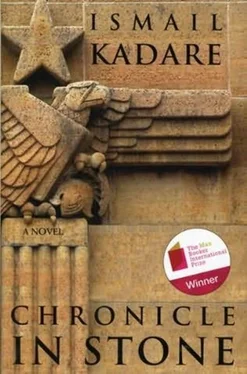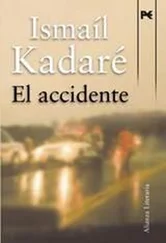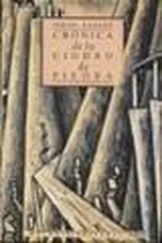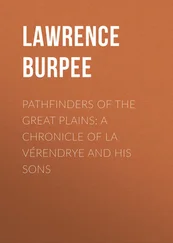Ismaíl Kadaré - Chronicle in Stone
Здесь есть возможность читать онлайн «Ismaíl Kadaré - Chronicle in Stone» весь текст электронной книги совершенно бесплатно (целиком полную версию без сокращений). В некоторых случаях можно слушать аудио, скачать через торрент в формате fb2 и присутствует краткое содержание. Жанр: Современная проза, на английском языке. Описание произведения, (предисловие) а так же отзывы посетителей доступны на портале библиотеки ЛибКат.
- Название:Chronicle in Stone
- Автор:
- Жанр:
- Год:неизвестен
- ISBN:нет данных
- Рейтинг книги:4 / 5. Голосов: 1
-
Избранное:Добавить в избранное
- Отзывы:
-
Ваша оценка:
- 80
- 1
- 2
- 3
- 4
- 5
Chronicle in Stone: краткое содержание, описание и аннотация
Предлагаем к чтению аннотацию, описание, краткое содержание или предисловие (зависит от того, что написал сам автор книги «Chronicle in Stone»). Если вы не нашли необходимую информацию о книге — напишите в комментариях, мы постараемся отыскать её.
Chronicle in Stone — читать онлайн бесплатно полную книгу (весь текст) целиком
Ниже представлен текст книги, разбитый по страницам. Система сохранения места последней прочитанной страницы, позволяет с удобством читать онлайн бесплатно книгу «Chronicle in Stone», без необходимости каждый раз заново искать на чём Вы остановились. Поставьте закладку, и сможете в любой момент перейти на страницу, на которой закончили чтение.
Интервал:
Закладка:
I thought about it all the time. I felt proud to see it take off with a rumble that shook the world and that it alone could make, and to watch it turn slowly south. I never worried so much when any other plane was late coming back in. It always seemed to me that it stayed too long down there in the south. I thought I could hear it breathe heavily on its return. It seemed exhausted. At times like that I would wish it would never fly south again where they were fighting. The others are younger, let them go, I thought. The big one needed some rest.
But it couldn’t rest. Heavy and majestic, it took off almost every day and headed for the front. I was sorry not to be down south too, so I could see its huge wings above me.
“Those accursed planes are off again,” Grand-mother said one day, standing at the window and pointing at three of them, my great friend among them.
“What have you got against them?” I asked.
“They bring fire and blood wherever they go.”
“But the ones here never bomb us.”
“They bomb other cities. It’s the same thing.”
“Which ones?” I asked. “Where?”
“Far away, beyond the clouds,” said Grandmother.
I looked in the direction Grandmother had pointed to and said nothing. There beyond the clouds, I thought, far off, there are other cities where they’re fighting. What were they like, those other cities? And what was the war like there?
A north wind blew. The big window panes rattled. The sky was overcast. A low and even hum rose up from the aerodrome. Zzz! It filled the valley, coming in waves, never stopping. Zzz-sss. The sound spread and spread. Suzana! What was the secret of your lightness? Butterfly, stork-butterfly. You don’t know anything about the aerodrome. At your place now it’s like a desert. Blow wind, blow, on and on. Plane-stork-butterfly. Where are you flying off to? Planes hover in the sky…
I was awakened by Grandmother’s hand on my shoulder.
“You’ll catch cold,” she said.
I had fallen asleep with my head on the windowsill.
“They’ve addled your mind,” said Grandmother.
It was true. I was bewitched. And cold too.
“The cursed things are off again.”
I didn’t answer back. I knew she hated them, but that afflicted me now only in respect of the big plane. Maybe Grandmother was right about the others. Who could tell what the planes were doing way down there beyond the clouds, hidden from view? We too stole corn when we went to the fields outside the city, and got up to all kinds of mischief we would never have dared to do in town.
But there was one thing I just couldn’t work out – why the opening of the aerodrome had done nothing to stop the bombing. On the contrary, it got worse. When the English planes came, the small fighters took off right away, but the big plane sat on its belly on the field. Why didn’t it take off? The idea would torment me. I did all I could to think of excuses, refusing to believe that it could be afraid. No, this plane could never feel fear. During the bombings, as we burrowed in the cellar and it stood out in the middle of the open field, I dreamed for it to take off, just once. The English bombers would run for it then!
But the big plane was never in the air when the English came; it never took off then. It seemed it would never fly over our city. It knew only one direction, south, where they said the war was raging.
One day I was over at Ilir’s. We were playing with the globe, turning it this way and that, when Javer and Isa came in. They were furious, railing at everything, cursing the Italians and the aerodrome and denouncing Mussolini, who was supposed to be coming to visit the city soon. There was nothing unusual about that. Everyone cursed the Italians. We had long known that they were evil, despite their beautiful clothes, their plumes and their shiny buttons. But we didn’t know what to think of their planes yet.
“But what are their planes like?” I asked.
“Bastards, just like they are,” said Javer.
“You don’t understand such things,” said Isa. “You’re still too young. You’d do better not to ask.”
They exchanged a few words in a foreign language, the way they always did when they didn’t want us to understand them.
Javer looked at me for a minute, half smiling.
“Your grandmother tells me you really like the aerodrome,” he said.
I blushed.
“You like planes, do you?” he asked a moment later.
“Yes, I like them,” I said almost spitefully.
“Me too,” said Ilir.
They said something else in their unknown language. They didn’t seem angry any more. Javer took a deep breath.
“Poor kids,” he muttered. “Fallen in love with war, they have. Terrible.”
“Sign of the times,” Isa said. “This is the age of the plane.”
“Did you hear?” asked Ilir. “We’re terrible .”
“ Extraordinarily terrible,” I said. I took the lens out of my pocket and put it over one eye.
“Could you get me a lens like that too?” asked Ilir.
Javer’s words stuck in my mind all afternoon. Although when Ilir and I were alone again we decided that what they had said about the planes was a “hateful slander”, they had nevertheless cast a shadow of doubt over the aerodrome. Only the big plane was free of all suspicion. Even if all the other planes were evil, my plane couldn’t be. I still loved it just as much. My heart swelled with pride when I saw it lift off the runway, filling the valley with its impressive din. I especially loved it when it came back exhausted from the south, where there was fighting.
The nights were terribly dark again. We stayed in the main room two flights up, and my father’s monotonous voice once again tallied the lights of the military convoy, now going the opposite way, from south to north. I gazed off into the distance as before, but now I knew that down at the foot of the city, somewhere on the night-drowned field, the big plane was sleeping, its wings outstretched. I tried to figure out the approximate direction of the aerodrome, but it was so dark that I was disoriented. You couldn’t see anything at all.
The convoys kept rolling north. The booming of artillery seemed to come closer every night. The streets and windows were bursting with news.
One morning we saw long columns of Italian soldiers retreating along the road. They trudged slowly northward, in a direction neither the crusaders nor the lame wanderer had ever taken. Their weapons were slung on their shoulders, and they carried packs on their backs. Here and there among the soldiers were long mule trains loaded with supplies and ammunition.
North… Everything was now heading north. It was as if the world had changed direction. (Whenever I turned the globe in one direction, Isa, just to annoy me, would spin it the opposite way. What was happening now was more or less the same.) The defeated Italians were retreating. We expected the Greeks to follow on their tail.
I pressed my nose on the windowpane and concentrated hard on watching the columns move along the road. The little raindrops that the wind now and then battered on the windowpane made it all seem even sadder. The retreat went on all morning. At noon the columns of troops were still marching by. In the afternoon, when the last of them had disappeared beyond the Zalli and the road lay deserted (it was the time when the lame traveller was set to reappear), the air was suddenly filled with the dull growl of engines. I gave a start, as if shaken from a dream. Why? What was going on? In an instant I was no longer sleepy. Something unbearable was happening: they were all taking off! Two at a time, or three by three, the bombers were leaving the airfield with a fighter escort and flying away in that detestable direction, north. Scarcely had one group of three lifted off when another came rumbling down the runway. One after another the clouds swallowed them up. The aerodrome was emptying out. Then I heard the massive noise of the big plane, and my heartbeat slowed. It was all over. For good. It raised itself heavily, turned its beak north and flew off on outstretched wings. Gone forever. From the far horizon bedecked with a thick mist which soon swallowed up the great plane came the last sound of the throaty breathing I knew so well, but it had already grown distant and alien. Suddenly the world sank back into silence.
Читать дальшеИнтервал:
Закладка:
Похожие книги на «Chronicle in Stone»
Представляем Вашему вниманию похожие книги на «Chronicle in Stone» списком для выбора. Мы отобрали схожую по названию и смыслу литературу в надежде предоставить читателям больше вариантов отыскать новые, интересные, ещё непрочитанные произведения.
Обсуждение, отзывы о книге «Chronicle in Stone» и просто собственные мнения читателей. Оставьте ваши комментарии, напишите, что Вы думаете о произведении, его смысле или главных героях. Укажите что конкретно понравилось, а что нет, и почему Вы так считаете.












